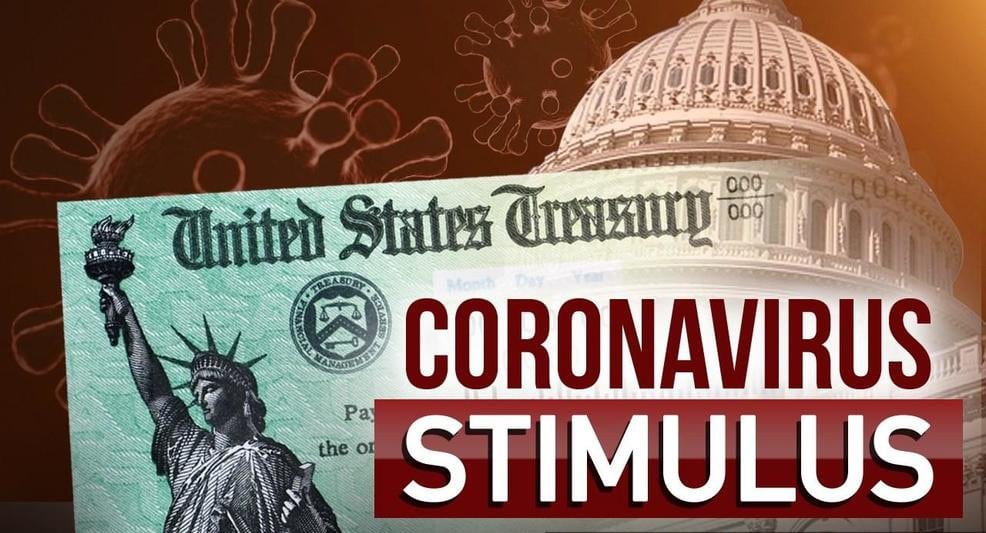 The ink is barely dry on the “Coronavirus Aid, Relief, and Economic Security Act” (CARES Act) and scammers are already coming up with schemes to defraud taxpayers. Specifically, identity thieves are using confusion over the stimulus checks to convince potential victims to turn over personally-identifying information.
The ink is barely dry on the “Coronavirus Aid, Relief, and Economic Security Act” (CARES Act) and scammers are already coming up with schemes to defraud taxpayers. Specifically, identity thieves are using confusion over the stimulus checks to convince potential victims to turn over personally-identifying information.
The Better Business Bureau is already reporting that government imposters are calling about COVID-19 relief. As part of the scam, callers suggest that you might qualify for a special COVID-19 government grant and that it’s necessary to first verify your identity and process your request. Variations on the scheme involve contacts through text messages, social media posts, and messages.
Other twists on the scam suggest that you can get more money from the government – or get your stimulus check faster – if you share personal details and pay a small “processing fee.” Don’t take the bait. Stimulus checks are free money from the government. You don’t need to spend money to receive your check. And there are no short-cuts – even for a fee.
The Internal Revenue Service (IRS) will deposit your check into the direct deposit account you previously provided on your tax return (or, in the alternative, send you a paper check). The IRS will not call and ask you to verify your payment details. Do not give out your bank account, debit account, or PayPal account information – even if someone claims it’s necessary to get your stimulus check. It’s a scam.
If you receive a call, don’t engage with scammers or thieves, even if you want to tell them that you know it’s a scam, or you think that you can beat them. Just hang up. If you receive texts or emails claiming that you can get your money faster by sending personal information or clicking on links, delete them. Don’t click on any links in those emails.
Reports are also swirling about bogus checks. If you receive a “stimulus check” in the mail now, it’s a fraud – it will take the Treasury a few weeks to mail those out. If you receive a “stimulus check” for an odd amount (especially one with cents), or a check that requires that you verify the check online or by calling a number, it’s a fraud.
If you’ve spotted a scam, you can report it to BBB.org/ScamTracker. Your report can help others avoid falling victim to scams.
The Federal Communications Commission (FCC) is also receiving reports of potential scams, warning on its website:
Many consumers will receive checks as part of the federal government response to the coronavirus. No one will call or text you to verify your personal information or bank account details in order to “release” the funds. The Treasury Department expects most people to receive their payments within three weeks, via direct-deposit information the department has on file from prior tax filings.
The FCC also warns that “Small businesses are also getting scam calls about virus-related funding or loans and online listing verification.”
Don’t buy the lies. Be cautious if you’re being pressured to share any information or make a payment. The FCC also advises: If you think you’ve been a victim of a coronavirus scam, contact law enforcement immediately.
When it comes to the IRS and taxes, remember that the IRS will never:
- Call to demand immediate payment over the phone, nor will the agency call about taxes owed without first having mailed you a bill.
- Threaten to immediately bring in local police or other law-enforcement groups to have you arrested.
- Demand that you pay taxes without allowing you to question or appeal the amount they say you owe.
- Require you to use a specific payment method for your taxes, such as a prepaid debit card, gift card, or wire transfer.
- Ask for credit or debit card numbers over the phone.
When in doubt, assume it’s a scam. You can find more tips on protecting yourself from identity-theft-related tax fraud here.
Again, you don’t have to do anything (other than perhaps file a previously unfiled tax return) to qualify for your stimulus check. There’s no need to sign up or call the IRS: you can find more information – when the IRS makes it available – at www.irs.gov/coronavirus. We’re already in the midst of a crisis: don’t become an additional victim.
